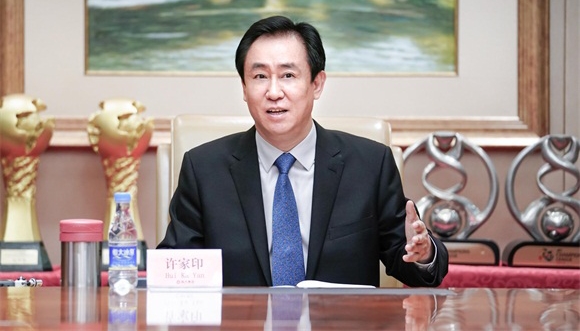On March 26th, the Evergrande Group released its financial report for 2017, showing that its annual revenue was CNY311.02bn, representing a 47.1% year-on-year growth. Net profit was CNY37.05bn, up by 110.3% from 2016.
A month later, one of the Group’s subsidiaries, Guangzhou Evergrande Taobao Football Club, reported an annual revenue of CNY528m (down 5.91%), which was only a quarter of Shanghai SIPG FC. That means, Guangzhou Evergrande accumulated a deficit of CNY2.5b (USD393.19m) since its debut on the New Third Board in November 2015.
So we saw an interesting comparison here: the continuous growth of Evergrande Group and the successive deficit of Guangzhou Evergrande FC.
The downturn was caused by several elements including heavy investment in transfer windows, the team’s decline in performance, and paying compensation for infringing the commercial rights of its former sponsor, Dongfeng Nissan.
First of all, let’s look at the reasons behind the losses of Guangzhou Evergrande FC. As shown in the financial report, the advertising revenue was CNY384m, accounting for 72.85% of the total revenue, while the competition appearance fee & prizes, and ticket sales occupied 15.74% and 9.06% respectively.
However, as we can see from its annual report, the club sold its advertising packages mainly to the Evergrande Group (49.29%), the Group’s clients, 3trees, Kunshanying and Robam (1.79%), and to the Chinese Super League Company (17.87%). The club has been apparently quite dependent on the financial support of the Group.
As the report of the club said, “The company's main business is the operation of the football club. Due to the limitations of the business, companies in the industry often need to make a continuous investment in introducing outstanding players and coaching staff and maintain the stability of the team's lineup by providing high-paid contracts, to ensure strong performance in domestic and international professional football events. Therefore, our operating cost is always at a high level.”
In 2017, the Hurun Report estimated that Xu Jiayin, chairman of Evergrande Group, has quadrupled to USD43bn in 2017, replacing Dalian Wanda owner Wang Jianlin to become China’s wealthiest man. Xu has always emphasized continuous investment in sports, especially Guangzhou Evergrande FC. As a successful businessman in China, Xu has his reasons to stick to a professional football club.
In this regard, Guangzhou Evergrande Taobao Football Club is an important part of the Group’s strategy. Although the club reported a deficit in past years, it has become an irreplaceable tool for the Group to create an outstanding advertising effect as well as increase the domestic and international reputation of the real estate group. As Xu once said in 2017, the value of his investment in football in past several years is more than CNY10bn in advertising.
Therefore, it seems that Xu Jiayin sees Guangzhou Evergrande more as a way of sports marketing than a short-term investment.
However, according to Yu Jing, a well-known Chinese reporter, the Chinese Football Association (CFA) is having a discussion about introducing a salary cap for the Chinese Super League (CSL) and the China League One. The new salary policy, expected to be carried out for first-team players by 2021, which may lead to a spending ceiling of 75 percent of a club’s annual revenue.
According to several news reports, the new policy will be designed to limit the introduction of too many international players, change the current status of the continuous deficit as well as ensure the healthy financial mechanism of professional football clubs in the country.
Specifically, if Guangzhou Evergrande generates CNY530m in revenue just as it did in 2017, its salary ceiling will be about CNY400m, which is a dramatic decrease from CNY1.242bn the club paid for players and coaching staff last year.
For club owners like Xu Jiayin, they have to consider other methods to make their teams more competitive both on and off the pitch. In fact, Xu officially released his goal for Guangzhou Evergrande in a 2017 meeting: using all Chinese players in the team by 2020. Xu is also forward-looking by saying that their number of international players will be reduced instead of being increased over the coming years.
But, as we all know, it is time for Guangzhou Evergrande to become a policy-adapter instead of a game-changer.
Proofread by William Logsdon
